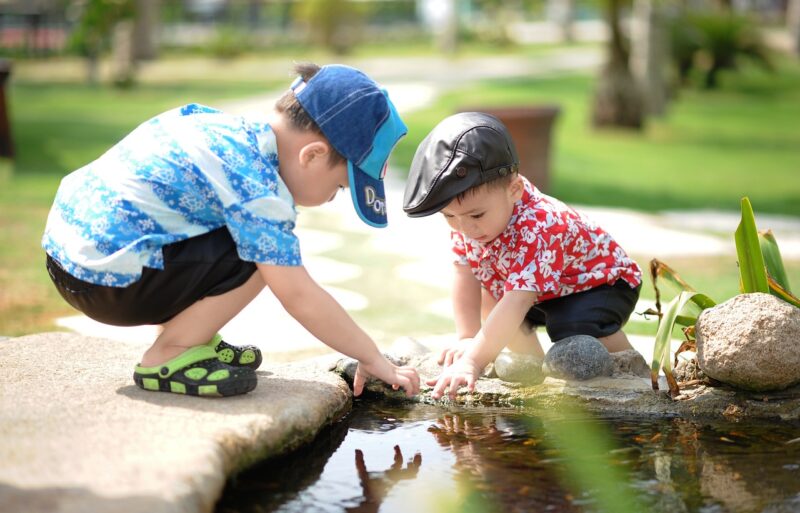The Impact of Music on Childhood Development and Learning
November 14, 2024

Music is an integral part of human culture and experience, often regarded as a universal language that transcends barriers. For children, exposure to music and engagement with musical activities can greatly influence their development and learning processes. From enhancing cognitive skills to fostering emotional well-being, the effects of music on childhood development are profound and multifaceted.
1. The Cognitive Benefits of Music Education
Research has consistently shown that music education can significantly enhance cognitive development in children. Various studies suggest that learning to play an instrument can improve spatial-temporal skills, which are essential for tasks such as solving math problems and understanding abstract concepts.
– Enhancing Memory: Learning music requires memorization, not just of notes and rhythms but also of the emotional content and structure of the compositions. This training can lead to improved memory skills overall.
– Language Skills Development: There is a strong correlation between music education and language skills. Musical training can aid in phonetic awareness, enabling children to distinguish between different sounds, which is crucial for language acquisition.
– Mathematical Ability: The study of rhythm and music involves counting, fractions, and patterns, effectively bridging the gap between music and mathematics, helping children develop a more profound understanding of math concepts.
With ongoing engagement, music can nurture the brain’s plasticity, resulting in improved higher-order cognitive functioning.
2. Emotional and Social Development through Music
Music not only supports cognitive growth but also plays a crucial role in fostering emotional and social development in children.
– Emotional Expression: Music serves as a healthy outlet for children to express their emotions. Through singing, playing instruments, or even just listening to various genres of music, children can convey feelings they may struggle to articulate verbally. This process can boost their emotional intelligence and promote self-regulation skills.
– Social Skills and Teamwork: Engaging in musical activities, such as group singing, playing in bands, or participating in theater productions, encourages teamwork and collaboration. Such experiences help children learn how to work cohesively within a group, respect others’ opinions, and develop strong interpersonal relations.
– Building Confidence: Performing music, whether in front of peers or during family gatherings, can significantly enhance a child’s self-confidence. Mastering a musical piece and receiving positive feedback will encourage children to take risks and expand their comfort zones both musically and in life.
Thus, music education plays a crucial role in nurturing emotional and social growth, equipping children with valuable life skills.
3. Music as a Tool for Learning
Integrating music into learning environments can take various forms that enhance the overall educational experience. Music not only makes learning enjoyable but also reinforces knowledge retention.
– Incorporating Music in the Classroom: Teachers can utilize songs and rhymes to teach academic concepts, such as multiplication tables or historical timelines. Catchy melodies serve as mnemonic devices, helping students remember information more effectively.
– Movement and Music: Pairing music with physical movement, such as dancing or rhythm games, can enhance a child’s ability to absorb information while also addressing physical and kinesthetic learning styles.
– Creating a Positive Learning Environment: Playing music in the background during learning activities has been shown to create a more relaxed and stimulating environment, promoting concentration, creativity, and overall well-being among students.
Incorporating music into educational practices not only makes learning dynamic and fun but also helps solidify knowledge and improve cognitive retention.
4. Music and Cultural Awareness
Engaging with music exposes children to diverse cultures and traditions, providing them with a broader perspective of the world.
– Cultural Exploration: Learning songs from various cultures or participating in world music programs enhances children’s appreciation for diversity. Understanding different musical forms can foster respect and empathy towards others.
– Promoting Inclusivity: Music is inherently inclusive and can unite children of various backgrounds. Shared musical experiences can break down societal barriers, enhancing interactions between children from different cultures.
By introducing children to a diverse range of music, we enrich their knowledge and help develop open-mindedness and a deeper appreciation for cultural differences.
5. Conclusion: The Transformative Power of Music
In conclusion, music possesses transformative qualities that can significantly enrich childhood development and learning experiences. The benefits span cognitive, emotional, social, and cultural dimensions, laying the groundwork for well-rounded individuals.
Encouraging children to immerse themselves in music—whether through listening, playing instruments, or participating in musical communities—can foster lifelong learning skills and boost overall development. Music is not merely an art form; it is a powerful tool for nurturing harmonious growth in our children, paving the way for a more enlightened and empathetic generation.
As parents, educators, and caregivers, we should advocate for music education and ensure that children have ample opportunities to explore and express themselves through this beautiful and universal language.








